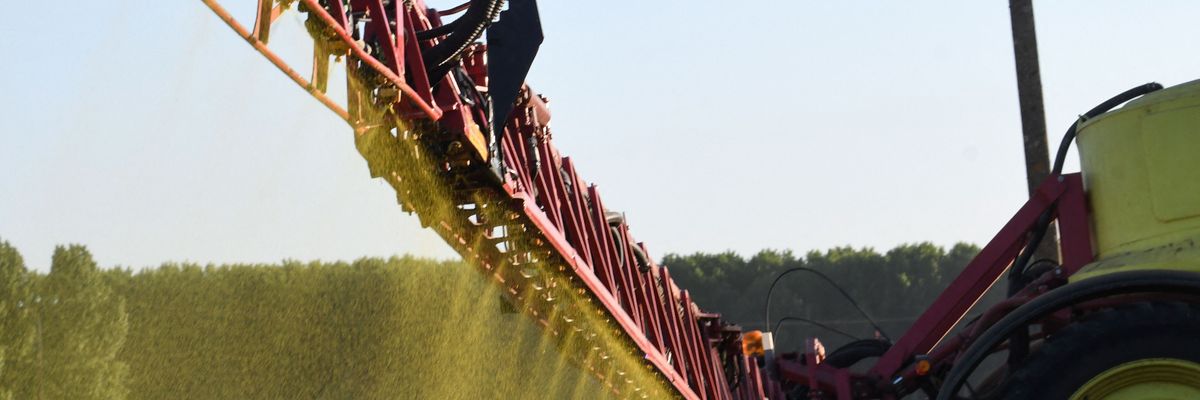With agricultural business owners continuing protests across France, Greece, Spain, and other European countries, European Commission President Ursula von der Leyen angered public health and biodiversity groups Tuesday as she announced the body would withdraw its proposed law to sharply cut the amount of chemical pesticides used in the European Union—a capitulation, said one journalist, to "landowners."
Brussels-based Arthur Neslen, who has reported for The Guardian and Politico, called von der Leyen's announcement "shocking, cowardly, and dishonest" as she withdrew the Sustainable Use Regulation (SUR).
The proposal was first introduced in 2022 and was aimed at slashing pesticide use in half by 2030 and banning pesticide products in areas including urban green spaces and protected sites under the Natura 2000 program, as well as promoting the use of sustainable alternatives.
With farmers staging protests across the E.U. in recent days, complaining over the high cost of maintaining agricultural businesses in Europe, von der Leyen said the SUR had become "polarizing."
Last week, the commission provoked an outcry from environmental advocates when it announced it would allow farmers to delay implementation of a rule requiring them to set aside some of their land to promote biodiversity.
Now, said critics on Tuesday, the commission's decision regarding SUR would further contribute to biodiversity loss as well as water and soil pollution and potential health impacts for people and wildlife.
Reducing European farmers' "dependency on pesticides is not only short-sighted, but a major disservice to public health," said Anne Stauffer, deputy director of the Health and Environment Alliance. "Those most vulnerable, including children, farmers, and farming communities, will continue to pay the price for the E.U.'s inaction."
Grace O'Sullivan, a member of European Parliament representing Ireland, noted that pesticides will continue to be permitted "in nature reserves, city parks, even playgrounds."
In her speech, von der Leyen said farmers "deserve to be listened to" as they face drought and other effects of the climate crisis, higher costs of living, and other factors that make agriculture more expensive.
"Only if our farmers can live off the land will they invest in the future. And only if we achieve our climate and environmental goals together, will farmers be able to continue to make a living," the commission president said.
Friends of the Earth said the "translation" of von der Leyen's comments was "farmers will keep on being poisoned and nature degraded, while the pesticide industry reaps massive profits."
"We cannot afford to leave the pesticide issue unresolved," the group said. "We need real solutions now to support farmers in transitioning away from toxic chemicals."
The Pesticide Action Network (PAN) said the commission's decision—which still has to be ratified by the College of Commissioners in the coming weeks—was made to benefit large "agribusiness interests" and not people struggling to run small farms.
"The European Commission just took a decision that is harmful to farmers and their families, as the first victims of pesticide use," said Martin Dermine, PAN Europe executive director. "Pesticide pollution is a huge problem that has to be tackled. It pollutes our waters, harms our health, and destroys the biodiversity that we depend on. It destroys fertile soil and endangers food production in the long run. We have to move towards a healthy and sustainable form of agriculture quickly, doing nothing is not an option in the light of the biodiversity crisis we're in."
"Thousands of scientists and millions of citizens have urged E.U. politicians to take urgent action," he added. "Not answering citizens' demands goes against democracy and only favors agribusiness."
